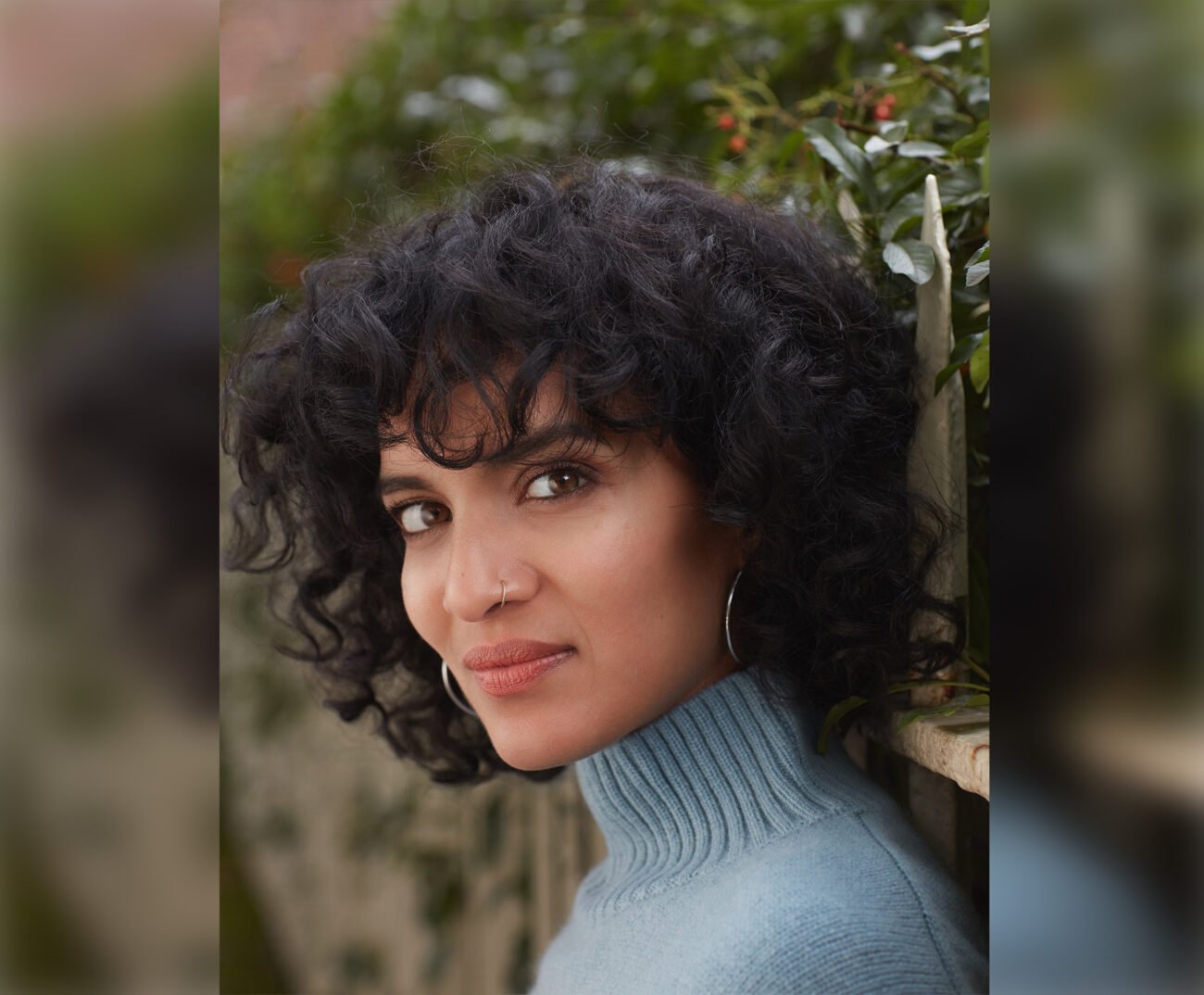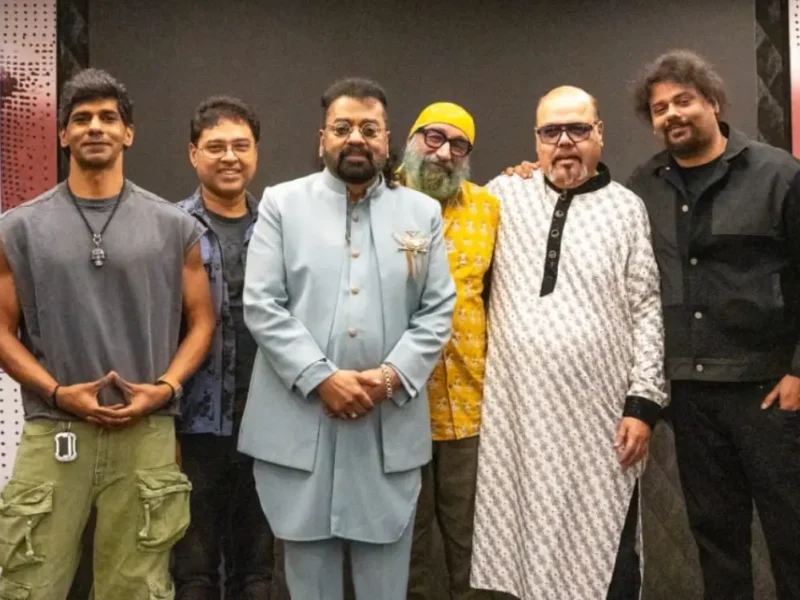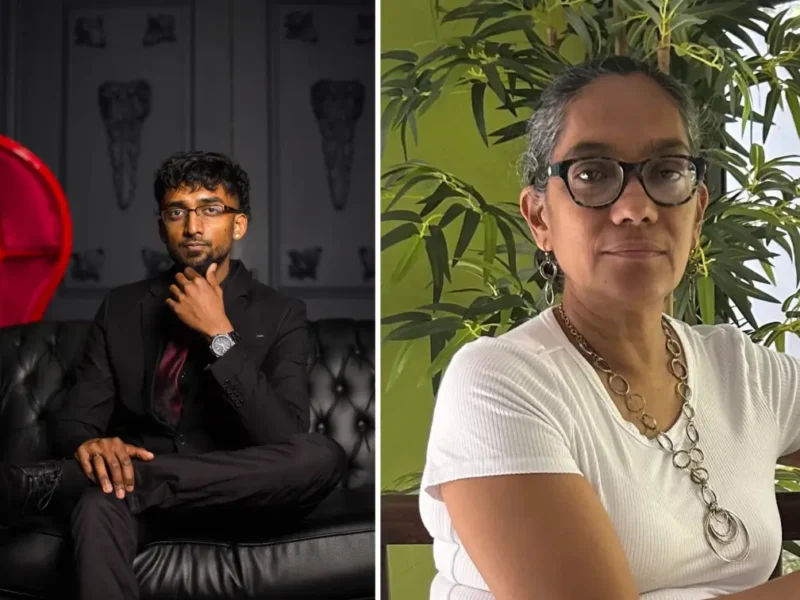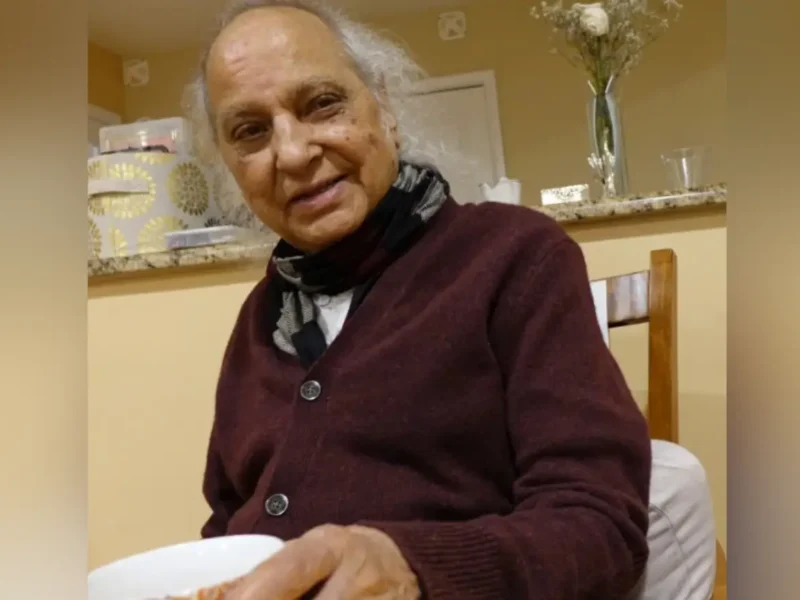
Anouskha Shankar Loves Her Dad, Struggled To Be Her Own Person
Photo : Anoushka will deliver a rare, deeply personal performance of Ravi Shankar’s ‘Concerto No. 3’ in Los Angeles. Photo: Laura Lewis
By REENA RATHORE
LOS ANGELES, CA – If one looks back at the last 25 years of Anoushka Shankar’s career, it becomes evident that her music has been influenced by every dimension of her personality: multi-instrumentalist, film composer, writer, producer, performer, globe-trotter, the impassioned activist, and most importantly, the classical and contemporary musician creating a sound that defies genres, bridges cultures and heals and connects.
With nine Grammy nominations under her belt, the acclaimed sitar virtuoso has indeed come a long way from when she first took to the stage as a 13-year-old as part of her late father’s – sitar maestro Ravi Shankar’s – 75th birthday celebration concert in New Delhi.
On May 20, Shankar will be bringing a deeply personal performance to the finale of the Los Angeles Chamber Orchestra’s 2022-2023 season. During “Shankar Plays Shankar,” she will be performing her father’s “Concerto No.3” with the Los Angeles Chamber Orchestra at the Alex Theatre in Glendale, CA, and at Royce Hall in Los Angeles, CA, May 21.
Premiered at Carnegie Hall in 2009, “Concerto No. 3” debuted with Anoushka on sitar alongside the Orpheus Chamber Orchestra. It remains the only Ravi Shankar concerto that hasn’t been recorded in the studio.
“It’s a joy to get to play” this “one-off performance” that doesn’t exist on any digital format, Shankar told India-West. “I think I was 27 or so at the time when he wrote it for its premiere. I have played it less than five times since then,” she said. “With a lot of music that I play, I feel close to my father of course, because I learned so much of the music I play from him. I play his other compositions but this one had a slight nuance that was a little different from everything else because it was a concerto written for me as a soloist.”
The narrative within this piece is about a young girl’s journey from childhood into adolescence. Being able to step into her father’s head and heart via this piece is a very “unusual” experience as a musician, said Shankar.
“It’s a very strange thing when I play it; it’s like I’m stepping into what I have imagined my father might be thinking of me as a daughter or whom he thinks I am when I play it,” she told India-West. “The first movement has all that kind of child-like energy and exuberance. And then the second movement has, what I imagine, he was thinking of as perhaps teenage heartbreak and loss and there’s this kind of real fire and power in the third movement. It’s not just me stepping into it as I would with any other music; I’m also thinking of how he saw me.”
A stalwart of Indian classical music, Ravi Shankar wrote this piece in his late ‘80s and also went on to write a symphony when he was 90. She said she hopes audiences not only enjoy her performance but also come away thinking about her father and his legacy.
“Everything we say about him is kind of an understatement, but I think it’s really fascinating about hearing the kind of music someone at that level was writing at the end of their life and career and how he thought of that mix of Indian classical music with orchestra,” Shankar noted. “There’s a lot there to unpick that can be very interesting but obviously, fundamentally, I hope they find the music beautiful and enjoy it.”
Shankar performed at the 2023 Grammys, where she won two nominations: in the ‘Best Global Music Performance’ category for “Udhero Na,” her collaboration with Pakistani multi-instrumentalist and singer Arooj Aftab; and in the ‘Best Global Music Album’ category for her live album, “Between Us,” along with Metropole Orkest and Jules Buckley, featuring Manu Delago.
Winning recognition on a prestigious stage such as the Grammys is always a “special” feeling but being nominated twice had that extra “zing,” she said.
“It felt like the first time I was nominated so it had the same level of excitement like ‘wow! This is new.’ So, on that personal level, it had that joy. On a significance level, I suppose that every time one of us is recognized like that I know that it’s part of making a difference that we are visible, that we are there in those spaces. So, I’m grateful. It’s wonderful to be having an impact in any way ‘coz I know it helps all of us,” she said, adding that like with everything, she tries to take it with a pinch of salt.
“It’s lovely but it doesn’t have a meaning beyond a certain level like it doesn’t fundamentally have some proof of worth as an artist,” Shankar noted.
Shankar, who became the first musician of Indian origin to perform at the ceremony in 2005 and also went on to perform in 2021, gave a beautiful rendition of “Udhero Na” at the awards ceremony.
“This performance was special because it was shared. When I performed before it was for my own music but this time, I wanted to recognize the co-nomination I had with Arooja Aftab. That felt like a very significant stage to be performing together on from our respective countries. I feel like there’s a huge pride that people feel to see someone from their country to be performing on those stages. I felt that love and excitement,” said Shankar, who was the first-ever Indian woman to be nominated and the youngest-ever nominee in the World Music category for her album, “Live At Carnegie Hall,” in 2002.
Shankar said she realizes the privileges of being her father’s daughter, but her music has also been shaped by her individual experiences.
“It’s obvious that I come with a certain lineage, heritage, or knowledge of classical arts but an equivalent amount of my life was just being a teenager in the ‘90s in California and being in India when that kind of fashion scene was exploding and being friends with all the DJ’s and that whole mix of nightlife and Carnegie Hall and trance parties and grunge, it was all me. And so as soon as I was being creative, writing music, there was no way the rest of couldn’t also come into the picture because that would’ve been dishonest,” she said.
Growing up in the presence of a towering personality, especially as a child and teenager, she struggled to be her own person.
“I was very aware of how people saw my father and how they may see me whether positive or negative, there’s pressure both ways of like, ‘Oh! She’s only got everything because she’s his daughter, she’s not that good’ or on the other side, ‘Oh! She’s got to continue this legacy,’ ‘She must be the best ever’ u know,” recalled Shankar, who’s never afraid to show her vulnerable side. “And to an extent it made me find it more challenging to find my own truthful artistic voice that wasn’t coming from how do I fulfil this idea that someone has of what I should be. I really had to go inwards and get clear on why I make music and what it’s for and who it’s for and what I want to say in the world as a musician with this opportunity I have. And so I think with that maturity and centering it sort of shifted in my mid-20s and late 20’s.”
Although it was an uphill climb, she was able to carve out her own path and take her career to global heights, earning multiple recognitions, including becoming the youngest and first female recipient of a British House of Commons Shield.
“People still continue to have a huge love and interest in my father and so they want to ask me about him a lot and that’s part of my story. But it doesn’t feel like that’s the only lens through which people see me anymore as an artist,” she stated.
Alongside her artistic pursuits, activism is also an integral part of her life. The multi-hyphenate artist, who was credited as an Asian hero by TIME magazine, often uses her musical platform and her name and voice to support women and children and amplify important issues such as violence against women, the refugee crisis and human trafficking.
Shankar said she was heartened to see the progress women and people of color have made in recent years vis-à-vis the time when she was almost always the only brown woman in the room.
“The shift that has been happening is so incredible. I keep thinking, God! I wish I had this when I was a teenager, when I was being formed, when who I was was becoming,” she said. “If I could’ve had these faces in the media I was looking at, if I could’ve had those role models. There was such a vacuum… When I look back to when I was doing press as a teenager, I was always the only brown female on that stage, which ever stage it was and you wouldn’t have even said brown woman or spoken about it because it would’ve drawn some kind of awkward attention to something. It was almost like ‘Oh my God! You are so lucky to be here…Just be grateful.’”
Currently, Shankar said she’s working on a series of mini-releases that will start to come out in October during her 15-city North American tour.
“I’m doing something different on a practical side and not necessarily releasing a big album this year but what I wanted to do was kind of drop a chapter at a time of a longer story so as I tour over the next year or two, I’m just releasing, unfolding the story as it goes. A fresh chapter is coming later this year and more to follow,” she said.
For tickets and more information, visit: https://www.laco.org/events/shankar-shankar.



